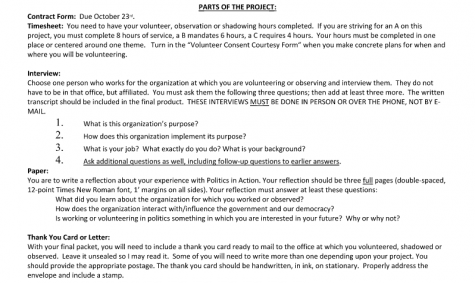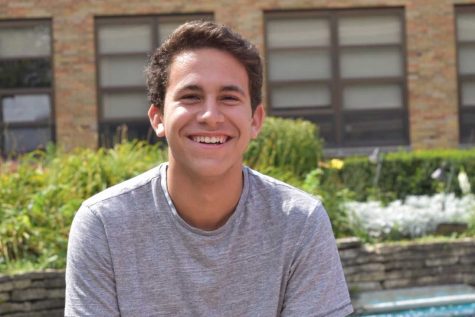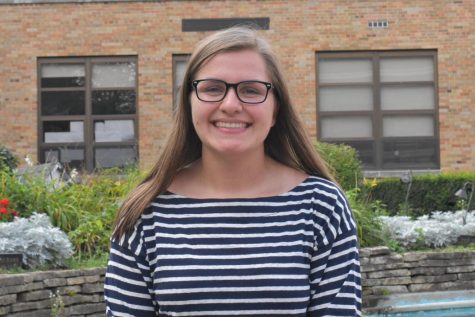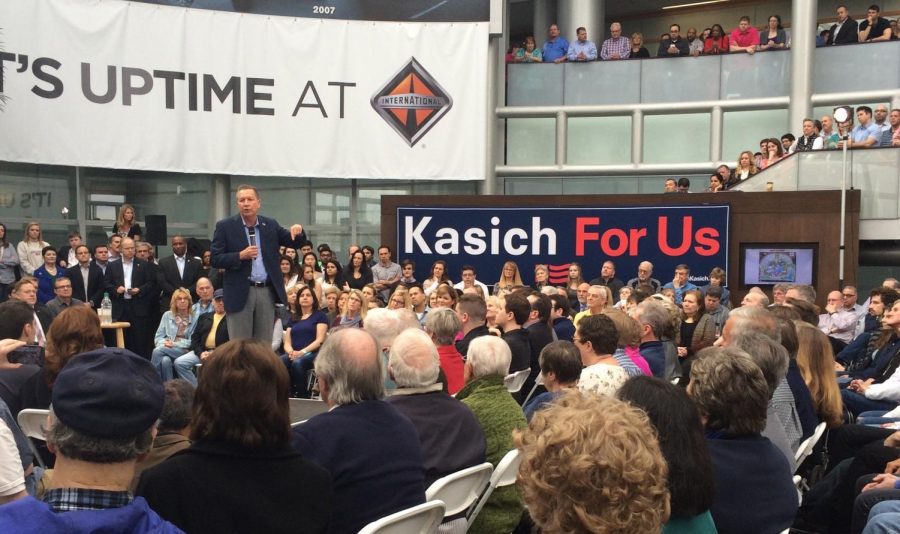Students volunteer for political campaigns
Mr. Wilbur frequently encourages his students to examine politics outside the classroom, such as attending political rallies. On Wednesday, March 9, 2016, Ohio Governor John Kasich spoke in Lisle, Ill. about his campaign for the presidency.
The school’s AP U.S. Government and Politics classes this semester are currently participating in their Politics in Action project, an annual assignment that the social studies department has had for more than 10 years. This project requires students to volunteer for a political organization, which gives students political experience.
The goal for the project is to get students more civically active and have them gain a better understanding of the political process. Examples of the type of volunteer work students will be doing include shadowing a government official, working for a political party or interest group, and working for a campaign.
“I’m volunteering for Sean Casten who is running for Illinois Congress,” said Colin Yandel, senior. “ We’ve had a couple of campaign events and we really tried to connect with voters on a grassroots level.”
Once students complete the eight hour requirement, they will then interview someone working for the campaign or organization to get that person’s perspective on politics.
“Over the course of the eight hours, students are doing things like phone banking, going door to door, and helping a candidate around,” said Mr. Christopher Wilbur, AP U.S. Government and Politics teacher who heads the project each year.

Students were given a set list of requirements for their final project, but by choosing how they want to complete their hours and what interview questions they want to ask, they are allowed to put their own spin on things.
After that, the student will then write a reflective paper about their experience.
“I now know that I’m going to pursue politics. I’ve reached out to a few political campaigns to see if they have any internship positions,“ said Hannah Swoyer, junior.
The project is due on Monday, Dec. 4, including a timesheet, the interview, the reflective paper, and a thank you note to the individuals who helped them with their project. All these components allowed students to take an inside look at the things they’ve been learning in the classroom.
“I learned that politics is a long and complicated process, and it is really hard to be successful,” Yandel said. “It requires a lot of personal connections and a countless hours of work.”

Brandon Belgrad, senior, is often spotted running through the streets of Hinsdale. He is a part of the cross-country and track and field teams. Along with...

Hannah Anderson is a senior whose second language is Internet. When she's not working on things for Devils' Advocate, she can usually be found blasting...











